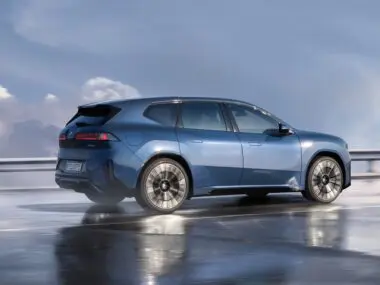Germany's automotive titans are making a powerful push into electrification as they battle sliding market share and intensifying competition. Volkswagen, BMW, and Mercedes-Benz have simultaneously unveiled ambitious new electric models, signaling a strategic pivot toward sustainable mobility while facing scrutiny from environmental watchdogs.
Key Highlights
- Simultaneous Launches: Volkswagen, BMW, and Mercedes-Benz have all introduced new electric vehicles in a coordinated effort to reclaim market relevance.
- Market Pressure: The launches come amid declining global market share for traditional German automakers against new EV competitors.
- Environmental Criticism: Major NGOs have accused the companies of "greenwashing," questioning the sincerity and overall environmental impact of their EV initiatives.
- Strategic Shift: This represents a significant portion of the industry's transition from internal combustion engines to electric powertrains.
A Triple-Threat Electric Offensive
Europe's automotive powerhouses are deploying their most advanced electric technology in a bid to reverse concerning market trends. Volkswagen has unveiled enhancements to its ID series, promising longer ranges and faster charging capabilities. BMW has introduced next-generation iterations of its i4 and iX models, emphasizing performance without compromising efficiency. Meanwhile, Mercedes-Benz has showcased its EQE and EQS sedans, positioning them as luxury benchmarks in the electric segment. This coordinated rollout represents one of the most significant collective moves by traditional automakers to date.
The Global Market Context
The German automotive industry, long synonymous with engineering excellence, has faced mounting pressure from agile EV startups and established competitors from China and the United States. Market analysis indicates that German automakers have lost approximately 4% of global EV market share over the past two years. This decline comes despite increased consumer adoption of electric vehicles worldwide, suggesting that competitors are simply moving faster and more effectively in the space.
Greenwashing Allegations Surface
Even as these automotive giants promote their new electric offerings, environmental organizations have raised serious concerns about the authenticity of their green transitions. Groups including Greenpeace and Transport & Environment have accused Volkswagen, BMW, and Mercedes-Benz of "greenwashing" - presenting an environmentally responsible public image that doesn't align with their broader practices.
The Criticism Explained
Critics point to several factors undermining the manufacturers' environmental claims. Firstly, despite their electric vehicle investments, these companies continue to produce and market high-emission SUVs and internal combustion engine vehicles globally. Secondly, questions have been raised about the carbon footprint of their manufacturing processes and battery sourcing practices. Finally, NGOs argue that the companies' lobbying efforts have sometimes opposed more stringent environmental regulations that would accelerate the industry's transition to sustainability.
Technical Specifications Comparison
| Manufacturer | Model | Range (WLTP) | Charging Speed (DC) | Starting Price (€) |
|---|---|---|---|---|
| Volkswagen | ID.4 Pro | 520 km | 135 kW | 45,000 |
| BMW | i4 eDrive40 | 590 km | 200 kW | 58,000 |
| Mercedes-Benz | EQE 350+ | 660 km | 170 kW | 72,000 |
The Path Forward
Industry analysts suggest that for German automakers to truly regain momentum, they must address both technological and perception challenges. The vehicles themselves demonstrate impressive engineering, but companies must also transparently address their entire carbon footprint, from supply chain to production to end-of-life recycling. Additionally, as government regulations tighten and consumer awareness grows, manufacturers will face increasing pressure to accelerate their complete transition away from fossil fuel vehicles.
The simultaneous unveiling of new electric models by Volkswagen, BMW, and Mercedes-Benz represents a critical juncture for the automotive industry. While these vehicles showcase significant technological progress, the accompanying greenwashing allegations highlight the complex challenge facing traditional automakers: they must not only develop competitive electric vehicles but also authentically transform their entire business practices. How these companies respond to these dual challenges of market competition and environmental accountability will likely determine their place in the automotive landscape of the future.


